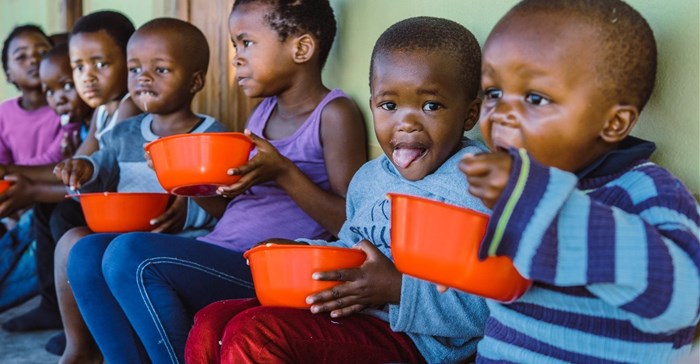The recent policy change by the Gauteng Department of Health, which requires Early Childhood Development (ECD) programmes to be registered to receive nutrition support, has left ECD programmes in shock.

Source: Supplied.
ECD practitioner, Abram Kgari from the Diepsloot ECD Forum, describes the policy change as "not punishing ECD practitioners, but the thousands of children we take care of".
The policy change abandons a prior inclusive approach that benefited all ECDs regardless of their registration status, and it comes in stark contrast to the ongoing campaign led by the Real Reform for Early Childhood Development (RR4ECD) movement which advocates for universal nutrition rights for all eligible children.
The Right to Nutrition campaign was based on extensive research and wide consultation across the ECD sector over the course of 2023.
The campaign’s call to action is clear: The Department of Basic Education (DBE) must implement a national nutrition programme that ensures all eligible children attending ECD programmes have access to the nutrition they need to thrive, regardless of the programme’s registration status.
RR4ECD’s position has been reiterated in the People’s Manifesto for Early Childhood Development, which is already supported by more than 4,500 people and more than 100 organisations.
This new policy must be understood in the current context in Gauteng where only 17% of early learning programmes are registered, 21% are in process and 57% are not registered.
Lack of sustenance raises alarms
The Gauteng Health Department has provided nutrition support to many early learning programmes at more than R9,48 per child per day regardless of their DBE registration status, while still ensuring the sites are safe for young children. This was probably one of the best nutrition support interventions that existed in the country for ECD. This step back is therefore deeply concerning.
“Of all the things they saw fit to do, they saw it fit for children to go hungry. I am wondering who made this decision. Did they ever think of the children?” asks Connie Mkhabela, founder of Lindokuhle ECD centre.
“This thing is not fair for ECDs because they gave us no notice; it was not even mentioned on the application form but now it is something they are calling us on and have set as a requirement,” said Sophie Taukobung, principal at Ebuhleni Bethu Day Care.
Tess Peacock, director of the Equality Collective – one of the organisations that sits on the steering committee of RR4ECD – said: "The government's decision to scale back essential nutrition support to only registered ECDs is a giant step backwards in our fight against child under-nutrition.
"This exclusionary policy harms our most vulnerable populations and widens the existing disparities in child health and development."
Nutrition crisis spurs action
South Africa faces a persistent challenge with child under-nutrition, with one in four children under five experiencing stunted growth. Early interventions in nutrition can significantly help mitigate these effects, which is why the support provided by ECD programmes is crucial.
The RR4ECD movement is urging the Gauteng Department of Health to rescind this regressive policy measure and continue its support for all ECD programmes, irrespective of their registration status.
"Ensuring that every child has access to necessary nutrition support aligns with both ethical standards and constitutional rights," says Peacock.
.




























